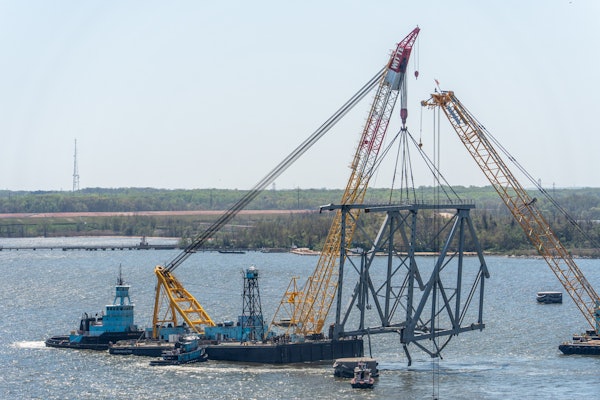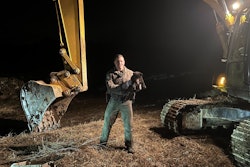State and local governments cannot impose their own emission standards for off-road equipment or on-road trucks, the U.S. Supreme Court ruled April 28.
In the 8-1 decision, the court said that under the Clean Air Act the federal government has the authority to enforce air quality standards nationwide. The emission restrictions made by local and state governments, therefore, are preempted by the Clean Air Act and are void.
The Engine Manufacturers Association filed the lawsuit against the South Coast Air Quality Management District in August 2000 because of a proposal to prohibit private companies and public agencies in the Los Angeles area from purchasing or leasing vehicles that did not meet certain emission requirements. The American Road and Transportation Builders Association filed three friend-of-the-court briefs during the case, arguing that state and local governments were preempted by federal regulations. ARTBA also stated it would be unreasonable to force contractors to comply with separate air quality regulations for each state and city they worked in.
According to ARTBA spokesman Greg Smith, the Supreme Court addressed the issues of emission requirements according to whether they apply to on-road or off-road vehicles. Statute 209-B, which specifically pertains to diesel emissions in off-road equipment, is broader than statute 209-A, which deals with on-road vehicles. Under the 209-B version, state and local governments cannot set emission requirements or “other requirements.”
Smith said the big question during the case was “what are emission standards?” The court ruled that state and local governments cannot put restrictions on engine manufacturers or vehicle/equipment buyers.
“If you tell somebody you can only buy this kind of equipment that has certain emission standards, that is enforcing a restriction,” Smith said.
The Supreme Court ruling could make local emission laws, such as one to be implemented next month in Lower Manhattan, obsolete. Under legislation signed by New York Mayor Michael Bloomberg last year, construction equipment operating at city-funded jobsites must use ultra-low-sulfur fuel and be retrofitted with pollution-reducing devices. The law was to be phased in throughout New York City within two years, but Smith said the Supreme Court decision should change that.
“In my opinion, if challenged, the New York law would be knocked out,” he said.









